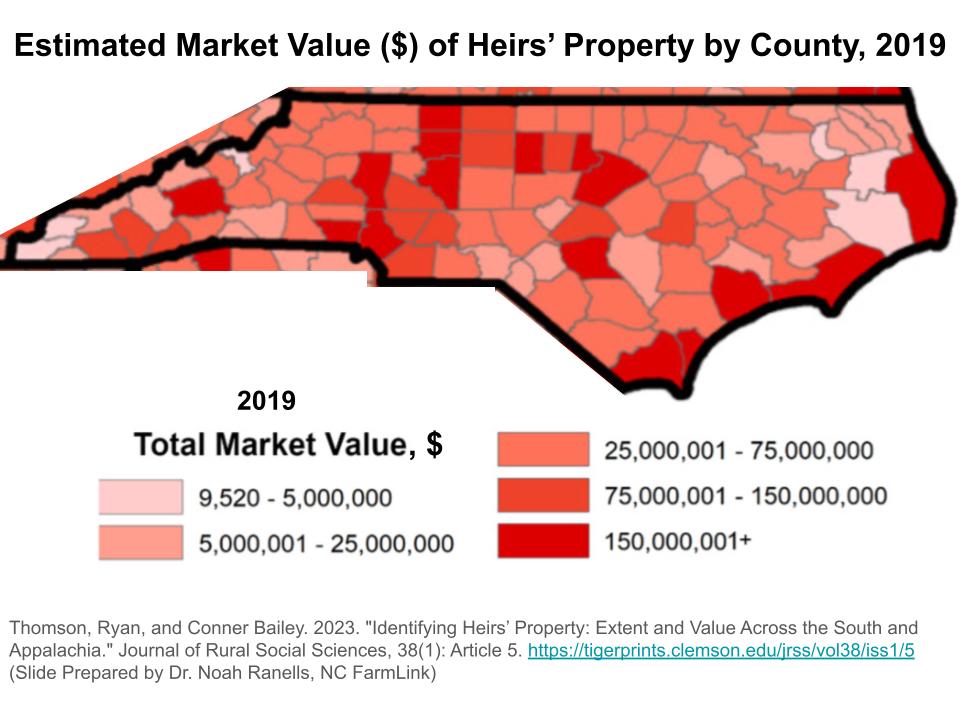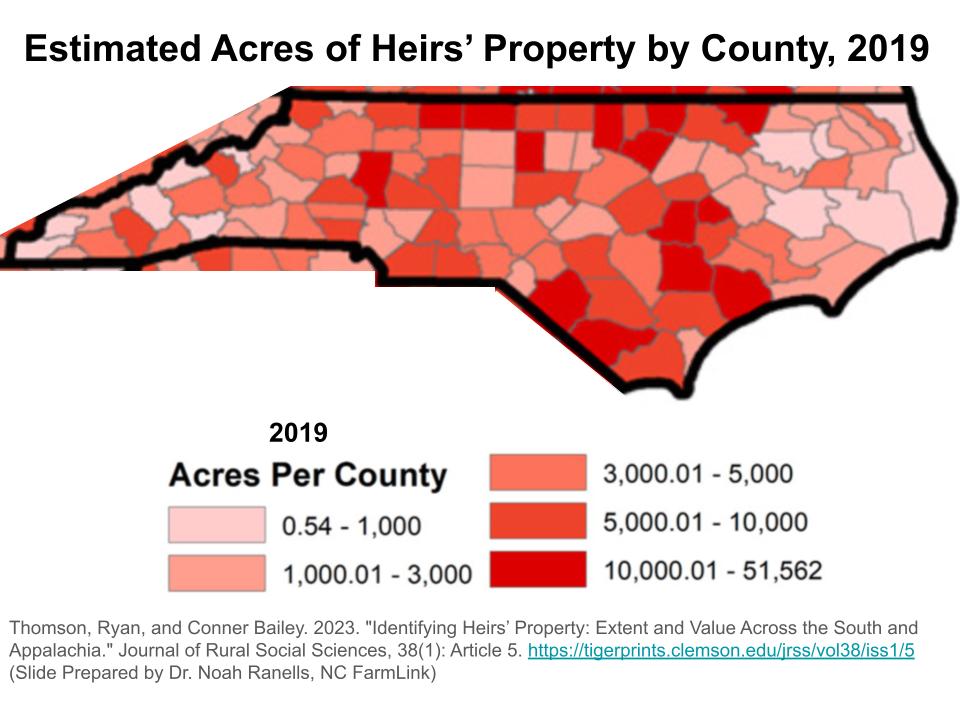Heirs Property
go.ncsu.edu/readext?1012561
en Español / em Português
El inglés es el idioma de control de esta página. En la medida en que haya algún conflicto entre la traducción al inglés y la traducción, el inglés prevalece.
Al hacer clic en el enlace de traducción se activa un servicio de traducción gratuito para convertir la página al español. Al igual que con cualquier traducción por Internet, la conversión no es sensible al contexto y puede que no traduzca el texto en su significado original. NC State Extension no garantiza la exactitud del texto traducido. Por favor, tenga en cuenta que algunas aplicaciones y/o servicios pueden no funcionar como se espera cuando se traducen.
Português
Inglês é o idioma de controle desta página. Na medida que haja algum conflito entre o texto original em Inglês e a tradução, o Inglês prevalece.
Ao clicar no link de tradução, um serviço gratuito de tradução será ativado para converter a página para o Português. Como em qualquer tradução pela internet, a conversão não é sensivel ao contexto e pode não ocorrer a tradução para o significado orginal. O serviço de Extensão da Carolina do Norte (NC State Extension) não garante a exatidão do texto traduzido. Por favor, observe que algumas funções ou serviços podem não funcionar como esperado após a tradução.
English
English is the controlling language of this page. To the extent there is any conflict between the English text and the translation, English controls.
Clicking on the translation link activates a free translation service to convert the page to Spanish. As with any Internet translation, the conversion is not context-sensitive and may not translate the text to its original meaning. NC State Extension does not guarantee the accuracy of the translated text. Please note that some applications and/or services may not function as expected when translated.
Collapse ▲Heirs property
 Heirs property, also known as “tenants in common” is land that is jointly owned by descendants of a deceased person whose estate was never handled in probate court and is passed down from generation to generation. These joint owners (heirs) have the right to use the property, but none of them have a clear title. Without proper documentation and a court proceeding to clear the “cloudy” title, third parties like banks, mortgage lending companies and others have no way of knowing who is really entitled to the property and whether any creditor claims apply. This means that none of the heirs can sell, mortgage, or make any repairs the real estate without written consent of ALL the heirs.
Heirs property, also known as “tenants in common” is land that is jointly owned by descendants of a deceased person whose estate was never handled in probate court and is passed down from generation to generation. These joint owners (heirs) have the right to use the property, but none of them have a clear title. Without proper documentation and a court proceeding to clear the “cloudy” title, third parties like banks, mortgage lending companies and others have no way of knowing who is really entitled to the property and whether any creditor claims apply. This means that none of the heirs can sell, mortgage, or make any repairs the real estate without written consent of ALL the heirs. IMPLICATIONS OF HEIRS PROPERTY
IMPLICATIONS OF HEIRS PROPERTY
- The land becomes vulnerable to involuntary loss through adverse possession, tax auction, or a partition-by-sale if granted by the court.
- The heirs cannot sell the property or use it as collateral for a mortgage
- The property may be ineligible for federal assistance, like USDA farm programs or FEMA support after a natural disaster
- Most potential tenants, logging companies, or other people who may wish to do business with the property may refrain due to title and ownership issues;
- Heirs may be reluctant to repair or improvement the property because every dollar spent is supposed to be divided among all of the other heirs.
- Family relationships can be ruined forever
- Precious family history and evidence of community contributions can be lost
In many situations, a landowner can inadvertantly create heirs property due to language in their will that indicates the individual wants to leave their farm equally to all their heirs. Without indicating specific surveyed parcels of land that have separate deeds, a tenants in commoon situation is created with all heirs having access to the aggregate of all land parcels owned by the person whio passed away.
Occurrences of heirs property are found in all types of landowners. In some parts of NC, the proportion of land owned by heirs is disproportionately high among racial and ethnic minority groups, low-wealth and low-income households, and other vulnerable populations who are less likely to conduct sophisticated estate planning. Relatively high rates of African American land loss during the 20th century likely contributed to the widening racial wealth gap by depleting existing assets and undermining the transfer of these assets across generations.


